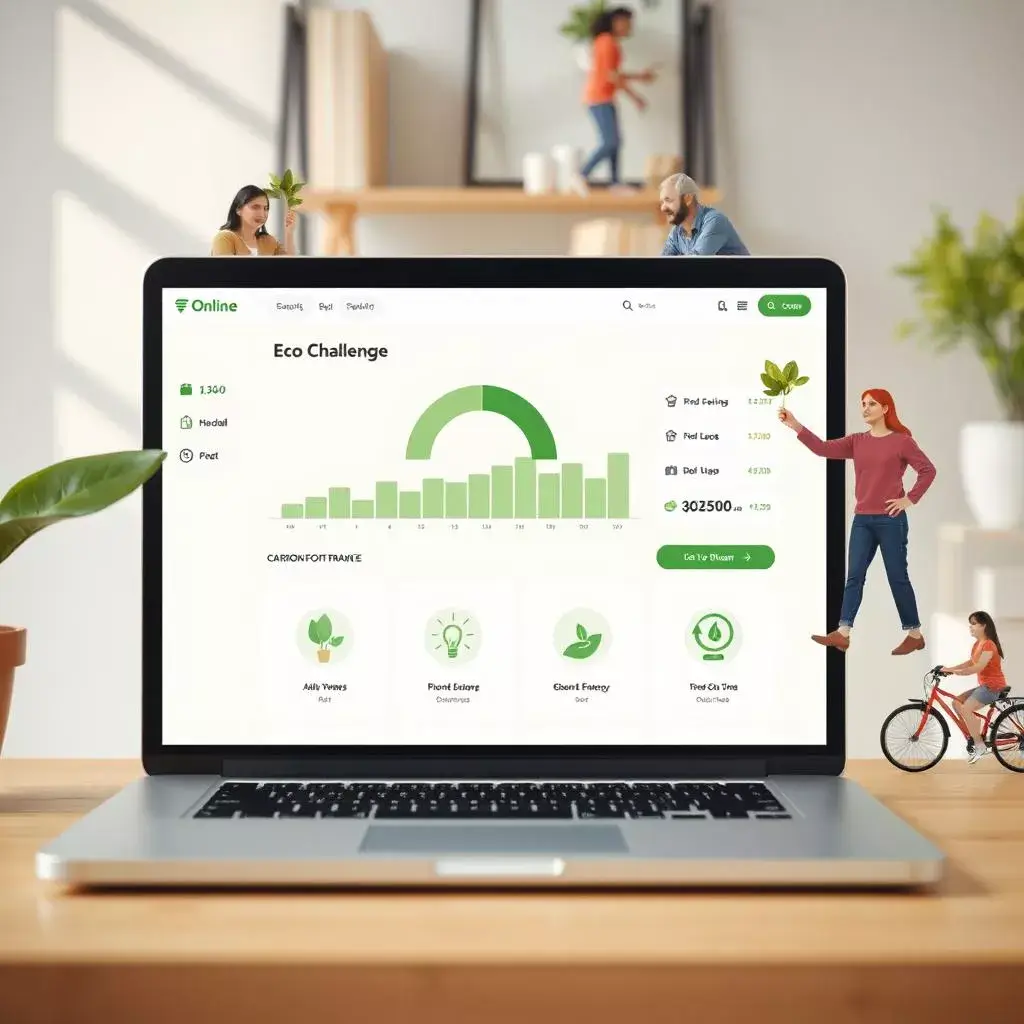1. Introduction
- Reducing carbon footprints has become a global priority, and online eco-challenges provide an engaging way to contribute to environmental sustainability. These challenges encourage individuals and communities to adopt greener habits through digital platforms.
- This article explores how online eco-challenges work, their benefits, and how you can actively participate to make a real impact.
2. What Are Online Eco-Challenges?
Definition: Digital initiatives designed to promote sustainable habits.
Types: Daily, weekly, and monthly sustainability challenges.
Platforms: Hosted on social media, dedicated apps, and websites.
Participation: Open to individuals, workplaces, and communities.
Impact: Helps spread awareness and promote actionable change.
3. Popular Online Eco-Challenges
Plastic-Free Challenge: Encourages participants to eliminate single-use plastics.
Meatless Monday: Promotes plant-based eating to reduce carbon emissions.
Low-Energy Living: Focuses on reducing electricity consumption.
Zero-Waste Week: Encourages participants to minimize waste.
Digital Declutter Challenge: Reduces energy use from excessive digital consumption.
4. How to Find and Join an Eco-Challenge
Search Social Media: Look for hashtags like #EcoChallenge or #SustainableLiving.
Check Sustainability Apps: Many apps host monthly challenges.
Follow Environmental Organizations: NGOs and activists often organize events.
Join Local Community Groups: Engage in neighborhood sustainability efforts.
Create Your Own Challenge: Start a movement with friends and family.
5. Benefits of Participating in Eco-Challenges
Personal Growth: Encourages better habits and a greener lifestyle.
Community Engagement: Connects like-minded individuals globally.
Environmental Impact: Reduces waste, carbon emissions, and resource consumption.
Cost Savings: Leads to lower energy and consumption expenses.
Inspiration for Change: Encourages long-term commitment to sustainability.
6. Daily Habits to Reduce Your Carbon Footprint
Switch Off Unused Electronics: Saves energy and extends device lifespan.
Use Reusable Bags and Bottles: Reduces plastic waste significantly.
Opt for Sustainable Transportation: Walk, bike, or use public transit.
Reduce Food Waste: Plan meals and store food properly.
Support Green Businesses: Choose eco-friendly brands and services.
7. Best Apps for Tracking Eco-Challenges
| App Name | Features | Best For |
| JouleBug | Gamifies sustainability efforts | Individuals and groups |
| Oroeco | Tracks carbon footprint | Personal progress tracking |
| Earth Hero | Suggests daily green actions | Beginners in sustainability |
| Klima | Offsets carbon emissions | Eco-conscious consumers |
| EcoCred | Rewards sustainable actions | Users seeking motivation |
8. Gamification: Making Sustainability Fun
Rewards & Badges: Encourages participation with incentives.
Leaderboards: Motivates users by tracking top contributors.
Group Challenges: Enhances teamwork and collective impact.
Personalized Goals: Allows users to set eco-friendly targets.
Social Sharing: Spreads awareness through digital platforms.
9. Corporate Participation in Eco-Challenges
Employee Engagement: Companies encourage staff participation.
Sustainable Work Policies: Reducing office waste and energy use.
Carbon Offsetting Initiatives: Supporting global environmental projects.
CSR & Brand Image: Strengthens corporate social responsibility.
Partnerships with NGOs: Supports global sustainability efforts.
10. Measuring Your Impact in Eco-Challenges
Track Carbon Reduction: Use apps or online calculators.
Monitor Energy Savings: Compare past and current usage.
Waste Reduction Metrics: Analyze decrease in plastic or food waste.
Community Contribution: Measure collective challenge impact.
Long-Term Behavioral Change: Assess new sustainable habits.
11. Challenges and Limitations
Lack of Motivation: Some may struggle to stay engaged.
Access to Resources: Not all participants have equal access.
Greenwashing Risks: Companies may promote false eco-claims.
Technology Dependency: Reliance on apps for tracking.
Skepticism Towards Impact: Difficulty in measuring real-world results.
12. Success Stories of Online Eco-Challenges
Earth Hour Campaign: Millions worldwide participate in turning off lights.
Plastic-Free July: Helps reduce millions of tons of plastic waste.
Meatless Monday Global Expansion: Significant reduction in carbon footprint.
University Sustainability Competitions: Encourages students to go green.
Corporate Green Initiatives: Many companies now adopt long-term sustainable practices.
13. Tips for Hosting Your Own Eco-Challenge
Set Clear Goals: Define what you want to achieve.
Create Engaging Content: Use social media to attract participants.
Incentivize Participation: Offer rewards or recognition.
Measure and Share Impact: Show progress through data.
Encourage Long-Term Habits: Ensure sustainable practices continue.
14. Conclusion
Online eco-challenges offer a fun and impactful way to reduce carbon footprints. Whether through small daily actions or large-scale corporate initiatives, these challenges empower individuals to make meaningful environmental contributions.
By participating in or creating your own eco-challenge, you can be part of the movement towards a greener, more sustainable future.
Disclaimers
Results from eco-challenges vary based on individual commitment and lifestyle factors.
Not all sustainability apps guarantee 100% accuracy in tracking carbon footprints.
Corporate green initiatives should be researched to avoid greenwashing.
Some challenges may require additional costs for sustainable product adoption.
Government regulations and policies may influence the impact of eco-challenges.
Author: Dipika Kumari
Publication Date: 27-03-2025
Email: [email protected]
